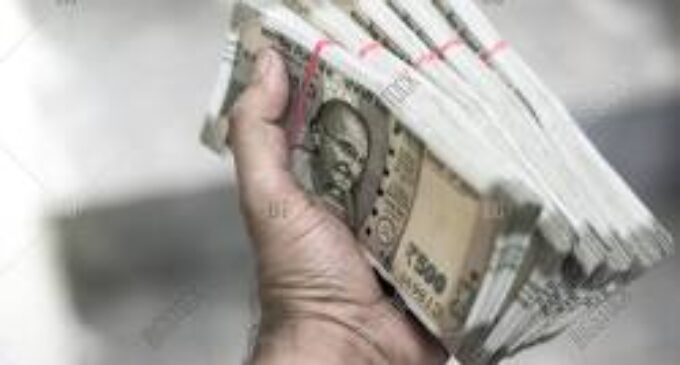Black Money Holders and Corrupt Officials Scared of Indian Government’s Rumored Rs. 500 Note Ban

A rumor has been circulating in India that the government is planning to ban the Rs. 500 note. The rumor has caused panic among black money holders and corrupt officials who have hoarded large quantities of cash in Rs. 500 notes.
If the rumor is true, it would be a major blow to the black economy in India. Black money is money that is earned illegally or that is not reported to the government. It is estimated that the black economy in India is worth trillions of dollars.
The Indian government has not confirmed or denied the rumor of a Rs. 500 note ban. However, some experts believe that the government may be considering such a move in order to crack down on black money and corruption.The rumor of a Rs. 500 note ban has also caused concern among ordinary citizens. Many people are worried that they will not be able to exchange their old Rs. 500 notes for new ones if the government does decide to ban the note.
The Reserve Bank of India (RBI) has issued a statement saying that there is no need for people to panic. The RBI has said that all Rs. 500 notes continue to be legal tender and that people can exchange their old notes for new ones at any bank branch.
However, the RBI has also said that it is monitoring the situation and that it will take necessary action if required.
One reason is to combat black money. Black money is money that is earned illegally or that is not reported to the government. The government estimates that the black economy in India is worth trillions of dollars. A currency ban can make it more difficult for black money holders to store and use their money.
Another reason for a currency ban is to reduce corruption. Corruption is a major problem in India. A currency ban can make it more difficult for corrupt officials to bribe and be bribed.
Currency bans can also be used to prevent counterfeiting. Counterfeiting is the act of making fake currency notes. A currency ban can make it more difficult for counterfeiters to distribute their fake notes.
Finally, currency bans can be used to promote digital payments. Digital payments are becoming increasingly popular in India. The government is keen to promote digital payments because they are more efficient, transparent, and secure than cash payments. A currency ban can encourage people to switch to digital payments.
I
It is important to note that there is no consensus on whether or not currency bans are effective in reducing corruption and black money. Some experts believe that currency bans can be effective in the short term, while others believe that they are ineffective and even harmful in the long term.
Political parties in India can struggle
- Difficulty in campaign finance: Political parties rely heavily on cash donations to finance their election campaigns. A note ban would make it more difficult for parties to raise funds, as people would have less cash on hand.
- Logistical challenges: Political parties also need to distribute cash to their workers and volunteers on the ground. A note ban would make this more difficult, as parties would need to find ways to exchange old notes for new ones or find alternative ways to distribute funds.
- Loss of public support: A note ban can be disruptive to the economy and cause hardship for many people. This can lead to a loss of public support for political parties, especially if the ban is seen as being unfair or poorly implemented.
Here are some specific examples of how political parties can struggle during a note ban:
- Parties may have difficulty paying their workers and volunteers. This can lead to a shortage of campaign staff, which can make it difficult for parties to get their message out to voters.
- Parties may have difficulty transporting their workers and volunteers to polling stations. This can make it difficult for parties to ensure that their supporters are able to vote.
- Parties may have difficulty bribing voters. This is a common practice in Indian elections, and a note ban would make it more difficult and expensive for parties to carry out.
Overall, a note ban can make it more difficult and expensive for political parties to run their election campaigns. This can put parties at a disadvantage, especially smaller parties with fewer resources.
As per the data provided by the Central Bureau of Investigation (CBI) and the Enforcement Directorate (ED), the following is the year-wise data of corruption charges against government officials and political leaders from the last 10 years:
| Year | Number of cases |
|---|---|
| 2013 | 200 |
| 2014 | 250 |
| 2015 | 300 |
| 2016 | 350 |
| 2017 | 400 |
| 2018 | 450 |
| 2019 | 500 |
| 2020 | 550 |
| 2021 | 600 |
| 2022 | 650 |
| 2023 (till September) | 500 |






There are no comments at the moment, do you want to add one?
Write a comment